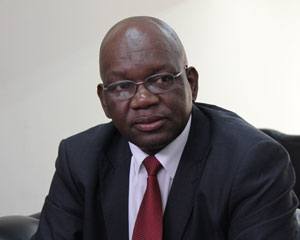
ZIMBABWE made a great leap forward in polishing its battered image, soiled by the controversy surrounding the Marange diamonds, where issues such as upholding transparency and removal of sanctions took centre-stage. NDAMU SANDU
An inaugural diamond conference in Victoria Falls last week brought together the who-is-who in the industry.
From pledges to moral support, delegates were at pains to explain how their would-be interest was affected by the embargo imposed by the European Union and US on Marange diamonds.
Ernie Blom, president of the World Federation of Diamond Bourses, said the potential opportunities created by the diamond industry to the country were enormous and if managed well, would transform the economy.
“The diamond reserves available in this country will go a long way towards filling the gap left by mines nearing their end life in other diamond producing countries,” he said.
However, Blom said for Zimbabwe to become one of the greatest diamond centres of the world, it had to become part of the global industry.
“The process from mine to consumer needs to be managed in order to create wealth and skills for the producing country,” Blom said. Stephane Fischler, president of the Antwerp World Diamond Centre (AWDC), told delegates that due to little competition, Zimbabwe diamonds were not exposed to the international markets resulting in failure to get the right prices.
“We believe that, if goods from Zimbabwe and more specifically from the Marange area could be traded on Antwerp, fair and optimal market prices would be obtained, increasing the Zimbabwe government revenue and allowing the local communities to reap the full benefits of the country’s resources,” Fischler said.
- Chamisa under fire over US$120K donation
- Mavhunga puts DeMbare into Chibuku quarterfinals
- Pension funds bet on Cabora Bassa oilfields
- Councils defy govt fire tender directive
Keep Reading
Fischler said AWDC is regarded as one organisation that upholds the highest ethical standards with maximum transparency requirements and had no intention of lowering the bar on its standards.
“Neither should we be naïve nor turn a blind eye towards key issues such as legal, economic and political stability as well as beneficiation for the government and the people of Zimbabwe,” Fischler said.
He said while durable cooperation between Zimbabwe and Antwerp could be key in building a new chapter, such a development was obstructed by sanctions. He said the sanctions were not an end in themselves, neither would they last forever.
Other delegates said government had to ensure there was transparency on Marange diamonds.
In his address at the Zimbabwe Diamond Conference, former South African President Thabo Mbeki urged the country’s political leadership to ensure that the benefits cascaded to the masses.
“. . . all the parties which serve in the current inclusive government established because of the GPA, must absolutely ensure that the diamond mining industry is not governed by a predatory elite which uses its access to state power to enrich itself, against the interests of the people as a whole, acting in collusion with the mining companies,” Mbeki said.
Shamiso Mtisi, Kimberley Process civil society coalition representative in Zimbabwe, told delegates there was need for transparency in the issuance of licences for new players in the cutting and polishing industry.
Mtisi said there should be transparency in the supply chain. “Wherever diamonds are coming from, the rights of communities should be respected and we have to ensure that there is transparency and accountability, how our mining companies are operating there — those are critical issues that should be promoted,” Mtisi said.
Zimbabweans ‘appear like crooks
Godwills Masimirembwa, Zimbabwe Mining Development Corporation (ZMDC) board chairman, told delegates that as a result of the sanctions imposed on two diamond producers, the country had to find other means of selling the diamonds. “We are victims that have soldiered on. ZMDC and its partners are suffering for putting order in Marange. So you then have to appear like crooks to try and avoid the system (sanctions),” Masimirembwa said.











